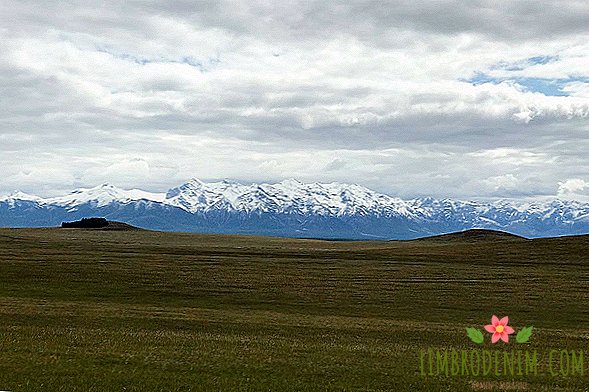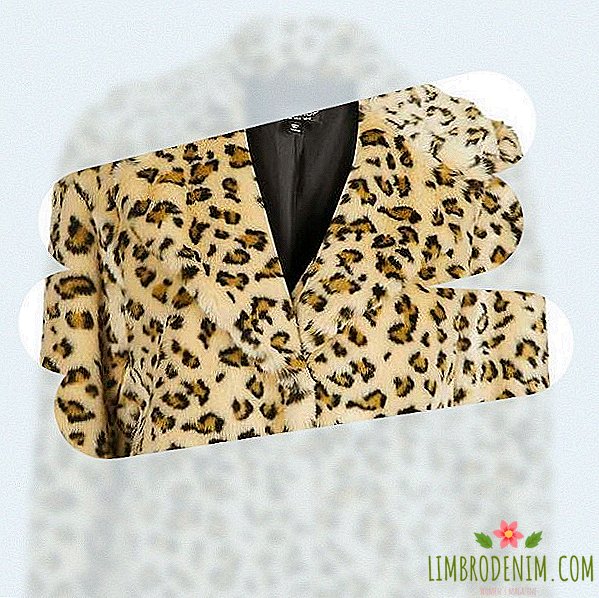Three horses and Chuka: How I traveled around Mongolia
The idea of traveling to Mongolia came to me about a year ago., during another desperate adventure - I tried to get from the capital of Laos to Vietnam on a walking bike with a basket bought at the local market for $ 50. It was a crazy summer half a year long when it seemed that everything was possible at all. And in the middle of the rice fields, stupefied by the heat, I promised myself that next year I would raise the bar and replace the bicycle with my horse.

The plan was this: I come to Mongolia, buy a horse, provisions, and get from Ulan Bator to the Chinese border, about 700 kilometers of the way. It was not at all obvious how this whole undertaking would work. I sat on horseback once in my life, at twelve years old, I had no idea how much a horse could ride in a day (and how much I did), I spent the last night in a tent in high school.
Returning to Russia, she began to prepare: she went to horse riding lessons for a month and a half. True, in the context of the trip there was little practical use. I learned to do confidently only two things: clean the horse and gracefully climb into the saddle. It was clear that even if I bought a horse, I would not go far. I decided that the best option is to live a couple of weeks in some village and learn everything on the spot. It remained to find him.
Google knows a little about Mongolia: all the ancient sites of travel agencies, posts from the Vinsky forum five years ago and scant notes on Lonely Planet. I decided to go the familiar way and find a volunteer program through the Workaway service. Fifteen programs are registered in Mongolia, fewer in Pakistan alone. I excluded large cities as unpromising from the point of view of animal husbandry, and half of the options immediately fell off. In the remaining eight places sent a request. Four responded: two programs searched for people for a period of three weeks, the other two agreed to receive me, but apparently changed their mind and stopped responding to emails.
Two weeks before the planned departure date I didn’t have any intelligible starting point, but I couldn’t put it off any longer. In September I moved to London and was sure that I would like to spend the next summer with my close people. So I just took the tickets (on the plane to Irkutsk, on the train to Ulan Bator) and decided to find out on the spot. I was lucky. In Irkutsk, I met William, a student from France. A month ago, he bought a horse in Mongolia and rode around the country for two weeks with a local guide. He helped with the starting point - 19 thousand rubles for a horse and the north of the country.
One moment darkened William's trip: a day before the end of the route a horse was stolen from him. "Cash back" did not happen. After talking with other travelers, I revealed a pattern: even with a local guide, 80 percent of the horses purchased were “lost” a couple of days before the end of the trip. This never happened with the rented animals, although the parking and route were the same. There was a nasty scheme.
I got on the train at the second attempt. It turns out that the railway throughout Russia is Moscow time. I was lucky that the time difference played into my hands and after a day I still arrived in Ulan Bator. After talking with several travelers and confirming the information, I decided not to waste time and leave as soon as possible. The next day I took a bus ticket and after 15 hours I was in Moray, a small town in the north of the country. I had to somehow get to the village of Khatgal. I thought that I would look at the bus timetable at the station, but it was not there, the passengers were landed on a wasteland.
I reached the only hotel on the map where I met two Israelis. The guys have already found the car to Khatgal and suggested that I fit in. Luck! In the village we stayed in the most fashionable guesthouse, I was allocated a separate yurt and even allowed to take a shower. The next morning, the guys left, and I went in search of Dala, a girl who, according to William, can help me with buying a horse. She kept a guesthouse in another part of the village, there were no signposts, but after wandering half an hour, I found him, and we sat down to talk. I said something like: "I have two weeks, 30 thousand rubles, and I want to buy a horse, what do you think?"
I did not take into account that the Mongolian horses are much smaller than the European ones and that you can’t easily fit the luggage to the Mongolian saddle is not the same construction. So you had to buy a second horse.
And then the revelations began. Dala immediately pointed out the weak points in my plan. It turned out that it is not difficult to buy a horse, I, as a white woman, will be paid a premium and everyone will be happy - 19 thousand rubles, the price I was willing to pay and not even get very upset if something happened to the horse and the money came to me will return. "But," she said, "you need not one, but two horses."
Of course, I understood that I was carrying luggage with me. Tent, sleeping bag, clothes, food for two weeks - about 20 kilograms. The course of my thoughts was this: 80 kilograms (I + luggage) are not at all a critical weight for a horse, and one will cope. I did not take into account that the Mongolian horses are much smaller than the European ones and that you can’t easily fit the luggage to the Mongolian saddle is not the same construction. So, it was necessary to buy a second horse, and this is another 22 thousand from above (horse + ammunition), for a total: 44 thousand only for horses. Much more budget, which I pawned. Besides, I had no idea how to cope with two animals at once. "In addition," said Dala, "keep in your mind that horses are likely to go somewhere, due to your oversight or with the assistance of the locals." So the original plan crumbled before my eyes.

Dala offered this option: to take horses for rent, with a local guide, twelve days riding north to the settlement of reindeer herders, to stay with them a few days ago and ride a ride. Difficult route, but in very beautiful places. I really wanted to buy a horse and brag about it on Facebook. But in the end, the lack of a budget for the second horse and common sense won, I decided to agree on the Dala option, especially she promised that the best of her children would go with a very "understandable english". For three horses accompanying, permission to enter the reserve, food for two weeks and sweets for local people, I spent 25 thousand rubles.
The next morning I met my guide, Chuka, a smiling Mongol about thirty years old in a bright pink national caftan — degel. He brought with him three small horses, settled in Mongolian style: the construction of the saddle-base and pads, fastened with straps, the stirrup on the right side is held on a leather belt, to the left - on a cloth, the bridle is connected from different ropes. We packed our bags into the traveling bags, loaded the horse and set off. On the first day we spent more than eight hours in the saddle, but it was warm and sunny, and, despite my tiredness, I felt great at the end of the day. Chuka and I saddled our horses, and while I pretended that I knew how to put up a tent, he made a fire. I felt somehow sad that the trip, which, according to my plans, should temper me, promised to be so comfortable. I was sad for nothing, it was the only day without rain for the entire trip.
Each new day was similar to the previous one, and this was its charm: getting up, half an hour to lie down and read, breakfast, collecting things — after eight hours everything was in the reverse order. On the day we met no more than a couple of people, but all the local men and even boys were armed. Immediately I remembered the advice of friends that it is necessary to take a pneumatic gun with you, so that if something happens, give a local rebuff. A pistol with rubber bullets against the edge - the Mongols would have fun.
We gradually moved to the north, it became colder and more beautiful. The first days I was changing from hiking clothes to a sleep set, but on the fourth night the temperature dropped to minus and my sleeping bag “to +5” stopped coping - to sleep, I had to put on all of my things: thermal underwear, two T-shirts, fleece pants and a jacket, one more pants, two pairs of socks, a down jacket and even a raincoat. Despite the weather conditions, every morning I woke up in a wonderful mood, and only one moment was undermined by my calm. Chuka knew in English exactly four words: "horse", "sleep", "water", "eat" - never "understandable english". He nodded to all my questions and said, "Yes." And the first time, this inability to get an answer even to the simplest question drove me into a frenzy. Drafting Emoji puzzles in notes sometimes helped to find mutual understanding, but not often. And then I just asked myself what would change if I knew that it was seven o'clock instead of six or eight. I realized that nothing, and relaxed.
In general, Chuka was a cool guy, and, probably, I also liked him. Probably why he decided to make me a real Mongolian. He taught how to distill herds of horses and sheep grazing, galloping and jumping over boulders. I also came up with some entertainment, the best - "horse-equalizer". Turn on your favorite track and accelerate, slow the horse to the beat. Jumping at a speed of 50 kilometers per hour under the "Fluorescent Adolescent" Arctic Monkeys is priceless.
Sometimes we stopped by to drink tea in yurts or stayed close to the parking lot, we were always invited to spend the night. From the inside, the yurt looks like this: two or three beds are arranged around the perimeter, several people sleep on each, the rest are on the floor; in the center of the stove; on the eastern, female half on the bed made food is prepared; bones are dried in the lattice walls of the yurt; there is a TV at the wall farthest from the entrance, a satellite dish sticks out on the roof; no toilet, no shower, no telephone connection.
Shoes from locals take off is not accepted, blankets and mattresses are not washed, probably never. Mongols wash rarely, warm water is expensive, the only option is mountain rivers. I quickly adopted local habits and did not wash for two weeks in a hike, could not get into the icy water, and managed with wet wipes. Napkins ended on the third day. I was lucky, the smell was atrophied at first. With external misery, which is not an indicator of poverty, but rather habits (leaky linoleum on the floor and dilapidated furniture with a good car), the Mongols are very hospitable people. I have never felt such warmth and care from absolutely strangers.
I invented some entertainment, the best - "horse-equalizer." Turn on your favorite track and accelerate, slow the horse to the beat. Jumping at a speed of 50 kilometers per hour under the "Fluorescent Adolescent" Arctic Monkeys - priceless
On a day with especially lousy weather, when there was no strength for anything, and you could squeeze out a bucket of water from clothes, we drove up to one aul to warm up. A big family was waiting for us inside: four generations, everyone is smiling, everyone is happy about us. I was treated with great attention. Traveling alone, a foreign woman is exotic for locals. I was immediately seated at the place of honor opposite the entrance, handed over a bowl with Mongolian milk tea. The older woman, Mom, took half of the chocolate bar out of the bins, reserved for special guests. Sliced bread, brought soft cheese from yak's milk and sugar - a national snack. I basked at the stove and watched the women cook dinner: roll out the dough, fry thin cakes on the baking sheet, cut them and the meat, and then stew them in butter in a cauldron.
While the children were running outside, the adults sat down to play dominoes. Mom, the local champion, explained the rules to me on the fingers, and after half an hour I won every third game, and the next morning I won the overall standings. Not to convey how happy I was at that moment, and how genuinely she rejoiced. I felt that I was part of the family and that I was really happy. In parting, they promised me to come again.

On the eleventh day, we reached Tsaganur, spent the night at the local border guards, and in the morning we moved to the settlement of reindeer herders. The first two hours were driving under heavy rain and another six - on this mud bog. If you step on the wrong side, you immediately fall down the chest. At that moment, when I thought that I wouldn’t budge anymore, the tops of chums appeared on the horizon. For the next two days, I stayed in my hut, played with local children, took pictures of deer and figured out how life works here.
In the northwestern part of Mongolia there are only two settlements of reindeer herders, we were in a larger one: twenty chums, about a hundred people and many deer. People live in isolation from civilization. To the nearest settlement eight hours on a horse: do not go on foot, do not drive by car. There is no local doctor or medicine. Earlier in the settlement lived a healer, she took birth. Now you have to go to Tsaganur. For a long time I tried to find out from the locals what profit from reindeer herding, how they earn. It was obvious that it was not selling meat, hides or cheese. It turned out, reindeer husbandry is fully subsidized event. That's such a funny story.
August 27, on my last day at the herders, it began to snow. We returned the same way, but the dirt froze, and it became a little easier to go. Eight hours later we reached the village, Chuka found the guys who agreed to drop me to Hatgal. We hugged goodbye and parted. Chuka back along the same route — returning the horses, and two days later I had to take the train to Ulaanbaatar, I had to hurry.
The journey lasted almost a month. I spent time alone with myself, thought carefully, rested and for the first time in a long time I felt really happy. I thought that a trip to Mongolia would be an experience completely opposite to what awaits me in England. Three weeks later, lying on a bare mattress, hiding in a down jacket in my empty London apartment, I realized that everything was not so simple. It turned out that the opportunity to temper oneself is given more often than the chance of a few weeks not to worry about anything.
Photo: Hunta - stock.adobe.com, personal archive





